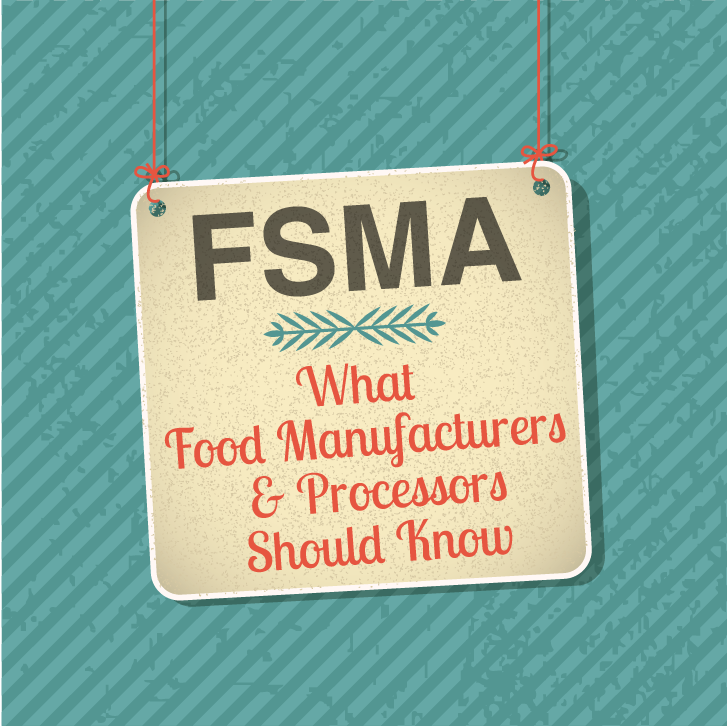Event Sponsor
Each Event Sponsor will receive:
•Company name and logo on a wide distribution of flyers describing the event.
•Mention of company name and a link to company website on e-mails to approximately 8,000 LIFT member companies.
•Ability to place the company’s advertising brochures or literature on a table at the event.
“An Introduction Into the Food Safety Modernization Act”
Join us for an Informative Seminar on the
Legislated Changes That You Need to Address
Tuesday, December 1, 2015
Registration 8:00 a.m. / Seminar 8:30 a.m. – 12:00 p.m.
Long Island Forum for Technology
LIFT Members - Free; Non-Members - $20.00
Continental Breakfast Included
Limit 2 Participants Per Company / Seating Limited to First 30 Registrants
The FDA’s Food Safety Modernization Act (FSMA) will dramatically change the way food manufacturers do business. Many companies have a short 12-18 months to understand and comply with the rules. Come September 2016, FDA Inspectors will start knocking on doors to assess a company’s compliance with the regulations.
This seminar will highlight all the key requirements such as Hazard Analysis, Preventive Controls, Oversight & Management of Preventive Controls and critical Compliance Deadlines which vary depending upon the size of your business.
About 48 million people (1 in 6 Americans) get sick, 128,000 are hospitalized, and 3,000 die each year from foodborne diseases, according to recent data from the Centers for Disease Control and Prevention. This is a significant public health burden that is largely preventable.
The FDA Food Safety Modernization Act (FSMA), signed into law by President Obama on Jan. 4, enables FDA to better protect public health by strengthening the food safety system. It enables FDA to focus more on preventing food safety problems rather than relying primarily on reacting to problems after they occur. The law also provides FDA with new enforcement authorities designed to achieve higher rates of compliance with prevention- and risk-based food safety standards and to better respond to and contain problems when they do occur. The law also gives FDA important new tools to hold imported foods to the same standards as domestic foods and directs FDA to build an integrated national food safety system in partnership with state and local authorities.
Key Requirements
1. Covered facilities must establish and implement a food safety system that includes an analysis of hazards and risk-based preventive controls. The rule sets requirements for a written food safety plan that includes:
- Hazard analysis: The first step is hazard identification, which must consider known or reasonably foreseeable biological, chemical, and physical hazards. These hazards could be present because they occur naturally, are unintentionally introduced, or are intentionally introduced for economic gain (if they affect the safety of the food).
- Preventive controls: These measures are required to ensure that hazards requiring a preventive control will be minimized or prevented. They include process, food allergen, and sanitation controls, as well as supply-chain controls and a recall plan.
- Oversight and management of preventive controls. The final rule provides flexibility in the steps needed to ensure that preventive controls are effective and to correct problems that may arise.
- Monitoring: These procedures are designed to provide assurance that preventive controls are consistently performed. Monitoring is conducted as appropriate to the preventive control. For example, monitoring of a heat process to kill pathogens would include actual temperature values and be more frequent than monitoring preventive maintenance activities used to minimize metal hazards, which could be a simple record of the date on which the activity took place.
- Corrective actions and corrections: Corrections are steps taken to timely identify and correct a minor, isolated problem that occurs during food production. Corrective actions include actions to identify a problem with preventive control implementation, to reduce the likelihood the problem will recur, evaluate affected food for safety, and prevent it from entering commerce. Corrective actions must be documented with records.
- Verification: These activities are required to ensure that preventive controls are consistently implemented and effective. They include validating with scientific evidence that a preventive control is capable of effectively controlling an identified hazard; calibration (or accuracy checks) of process monitoring and verification instruments such as thermometers, and reviewing records to verify that monitoring and corrective actions (if necessary) are being conducted.
To learn more about LIFT; the LIFT Family of Companies, member services, events and value-added benefits you won't receive from any other association, visit: www.lift.org. Contact Diane Muscarella at Dmuscarella@lift.org to become a member. All members are verified.



